Conference held: "Helping Those Who Help: Challenges in the Work and Well-being of Professionals Providing Psychological and Legal Assistance”
910 participants from all regions of Ukraine and abroad attended the conference“Helping Those Who Help: Challenges in the Work and Well-being of Professionals Providing Psychological and Legal Assistance”, which took place on April 3, 2024.
Amidst Russia's prolonged war against Ukraine, prioritizing psychological well-being becomes crucial for societal support and mitigating the collective trauma's adverse effects. The “Helping Those Who Help” program focuses on methodical and psychological assistance for professionals in psychosocial, psychological, and legal domains. Details about the program's activities can be found at the following link: hrvector.org/en/events/23-12-18-supervisory-group-sessions
The conference was dedicated to reviewing the outcomes of the “Helping Those Who Help” project, uniting efforts to address new challenges, and finding effective solutions.Due to the high demand from specialists eager to participate and receive information on the covered topics, we organized the conference on two online platforms (Zoom and YouTube) to ensure maximum participation and facilitate the sharing of experiences among attendees.
The participants comprised professionals from both the public and private sectors, including psychologists, psychotherapists, members of the medical community, lawyers, mediators, individuals from online help lines and other support projects/programs, social workers, representatives from Ukrainian and international public organizations, governmental bodies, local governments, and donor organizations. The majority of attendees hailed from the public sector.
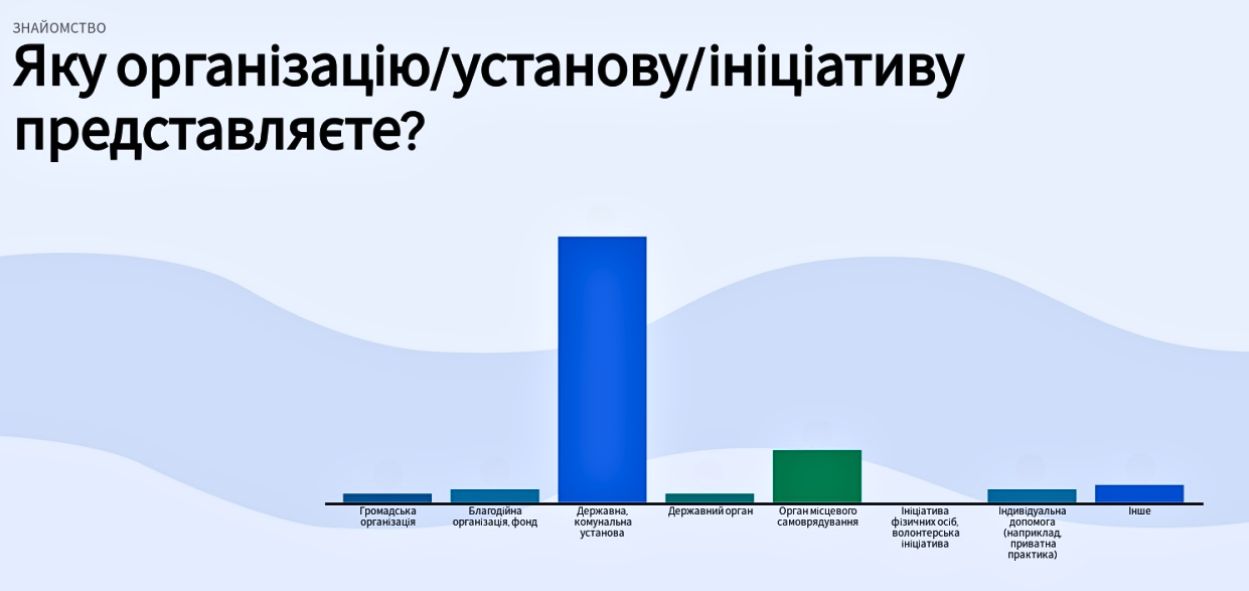
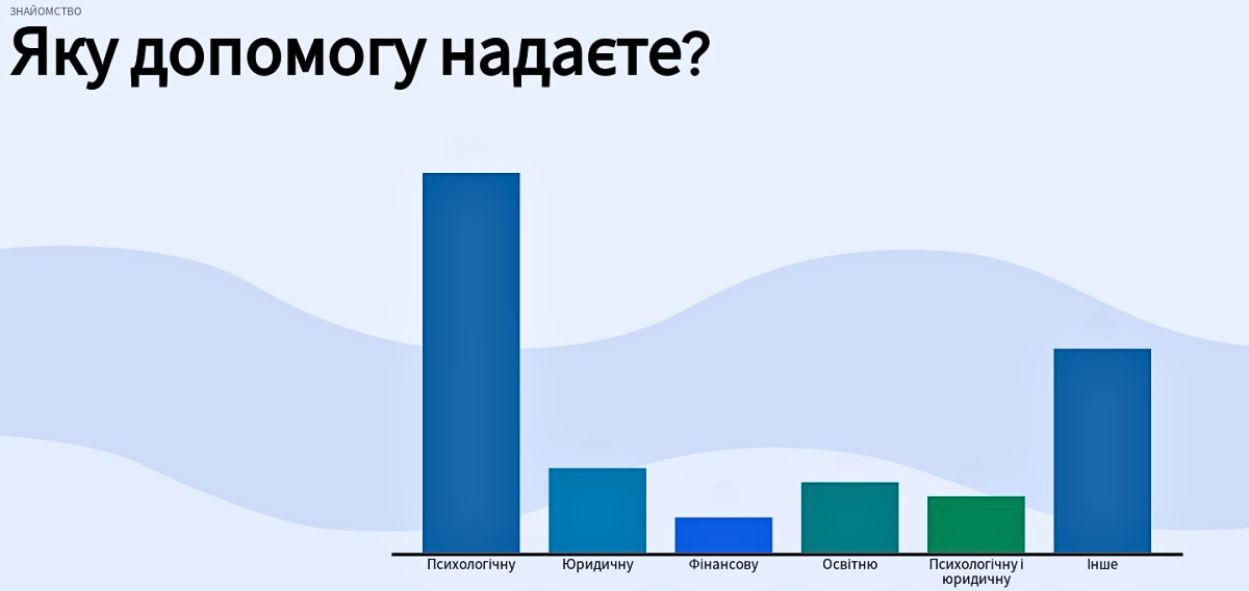
During the event, participants actively engaged in surveys facilitated by Valeria Rybak, the director of the NGO Human Rights Vector, and conference speakers. These surveys aimed to identify and analyze the challenges encountered by specialists in their respective fields.
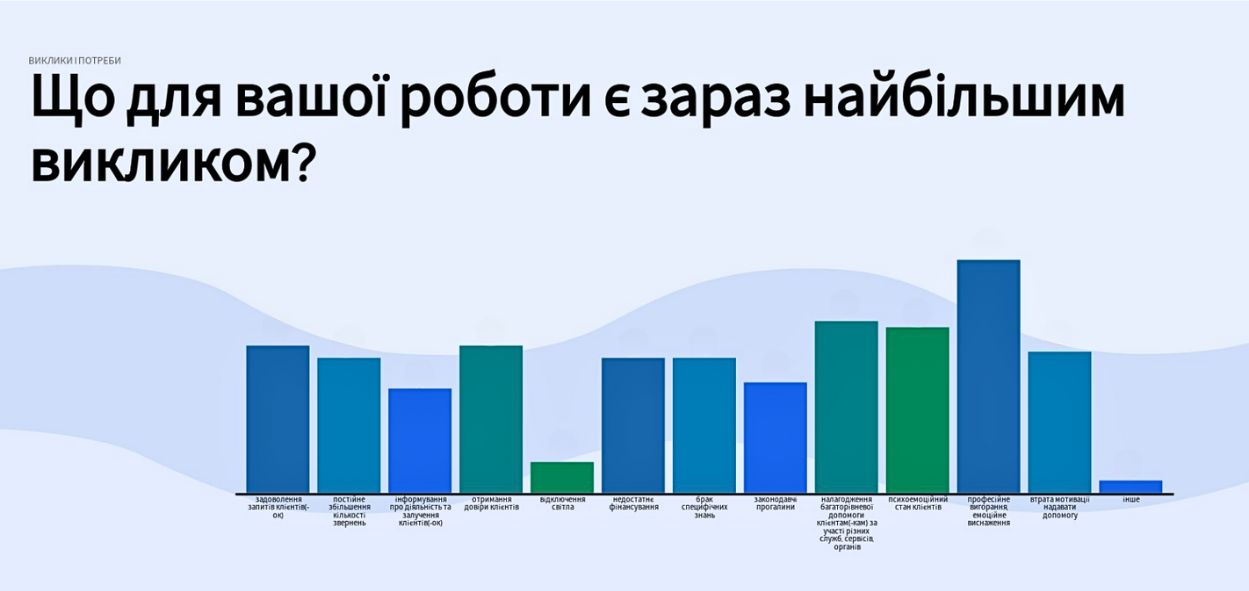
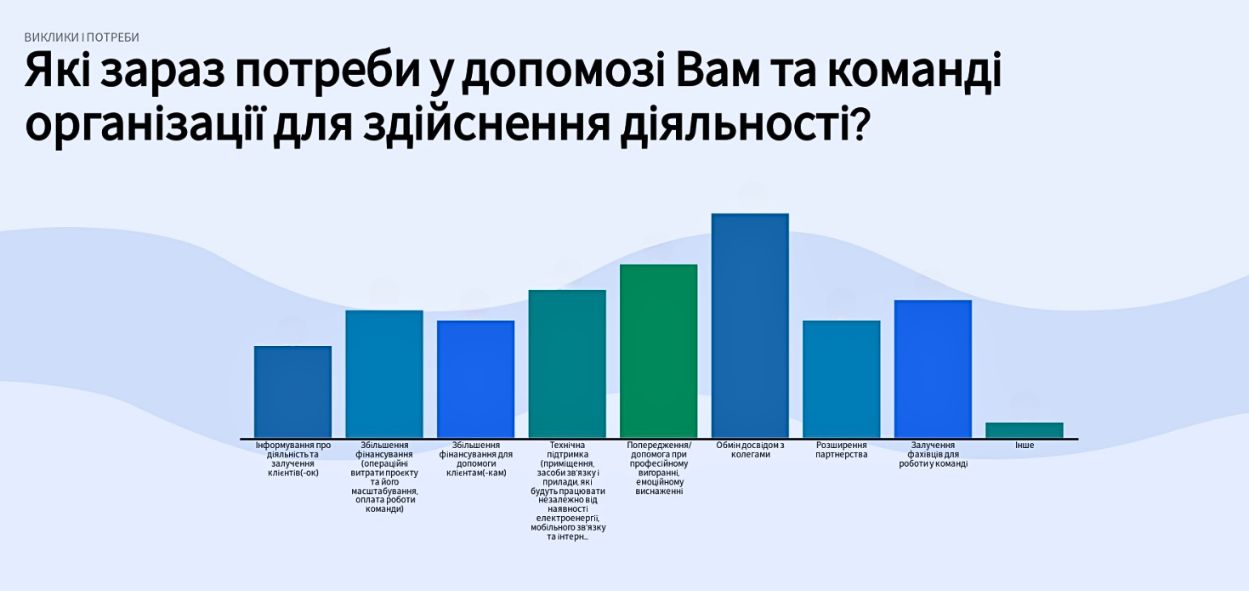
Valeriia Rybak opened the event by presenting the results of the “Helping Those Who Help” project over 2023-2024, carried out by the NGO Human Rights Vector.
The first part of the conference focused on specialists offering psychological assistance, addressing challenges in their work and maintaining personal well-being. The topics covered in the speeches included:
✔«Uncertainty as an key source of stress and building stress resistance», Iryna Ratzke-Rybak, psychoanalyst, supervisor, Head of the Section of Psychoanalytic Psychotherapy of Couples and Families of Association of Psychologists and Psychotherapists of Ukraine, a delegate of the EFRR, a full member of the GASI, EFPP.
✔«Support systems for Ukrainians in Germany in the field of mental health», Oleksandr Moldavskyi, psychiatrist, psychotherapist, doctor of medical sciences (Heidelberg University), M.Sc. in Biostatistics, Member of Ukrainian Medical Society in Germany, Central Institute of Mental Health Mannheim, German Center for Mental Health (DZPG), partner site Mannheim.
✔«Development of mental health services within Ukrainian communities», Natalya Pidkalyuk, psychiatrist, head of the «IPSI» NGO, Trauma focus trainer (Institute of Neuropsychotherapy, Austria).
In the second part of the event, the discussion centered around the challenges faced by specialists providing legal assistance and the maintenance of their own well-being.The topics covered in the legal aspect of the conference included:
✔«Experience of supporting the Legal Hundred NGO team», Yuliya Moriy, director of the Legal Hundred NGO.
✔«Support for legal service providers: insights from the free legal aid system», Nataliya Marchuk, deputy director of the Coordinating Center for the Provision of Legal Aid.
✔«Supporting aid professionals through a victim-oriented approach», Lilia Oliynyk, lawyer, mediator, dialogue facilitator, trainer.
The survey results and participant feedback underscored the importance of implementing measures to enhance resilience, both for professionals themselves and their clients, amidst prolonged stress. Systematic training and psychological support for specialists in helping professions offer an avenue to deliver high-quality assistance to those in need within the population.
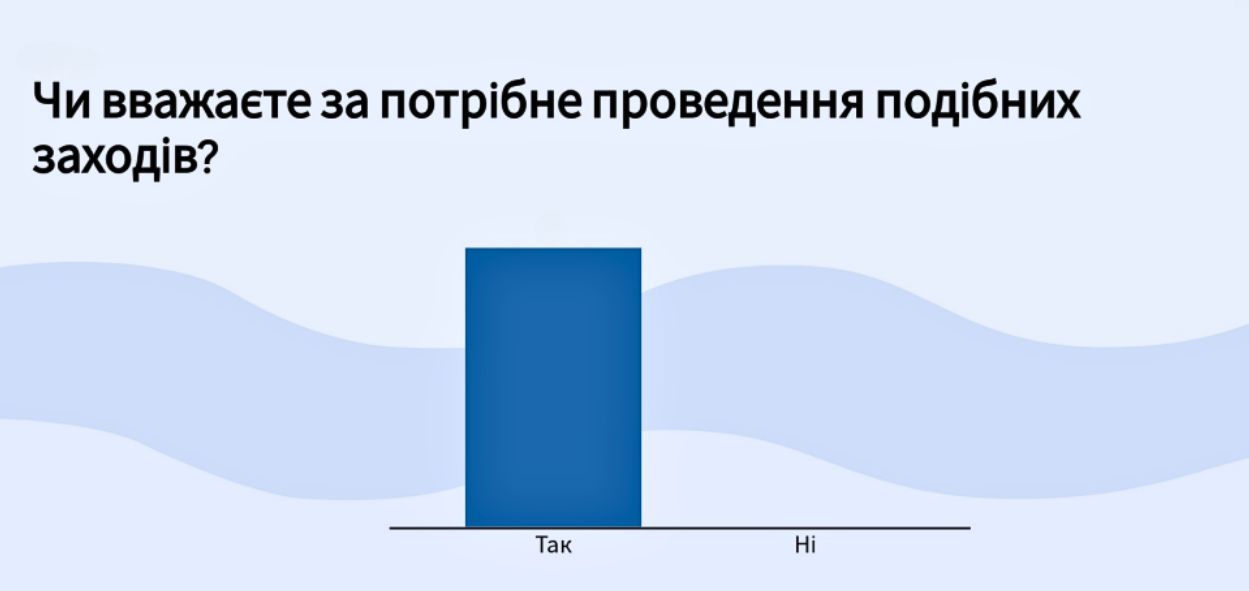
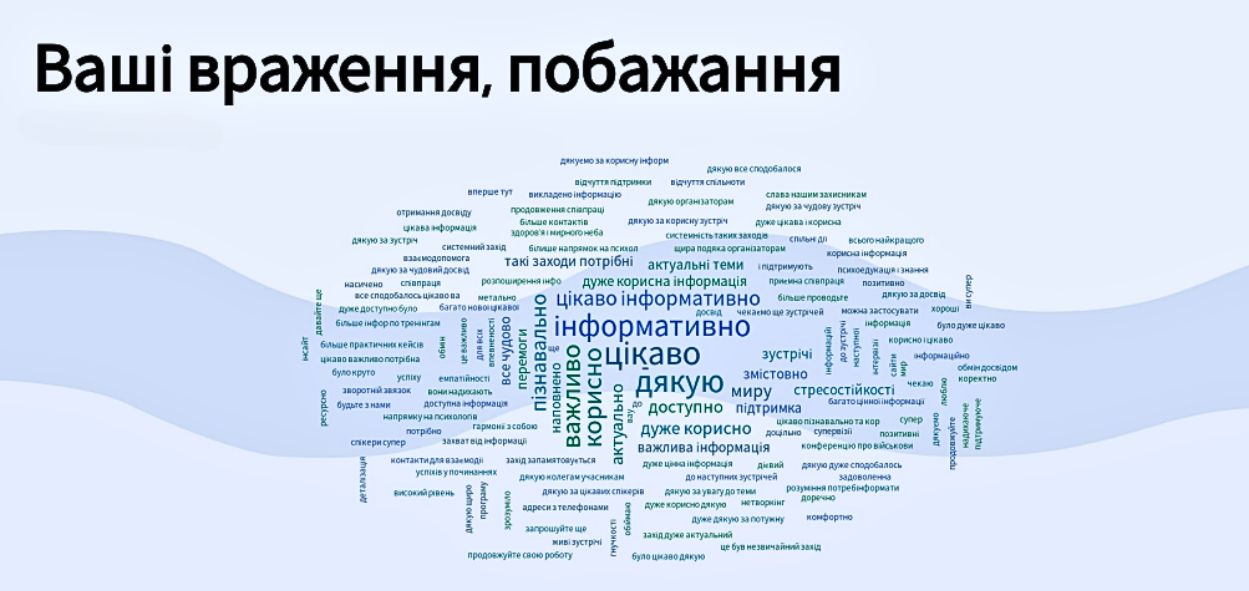
The conference recording is available for viewing on the Human Rights Vector YouTube channel via the following active links:
✔in Ukrainian: www.youtube.com/watch?v=pi5jD7oHrK0&t=880s
✔in English: youtu.be/Y47saT9Vqyo
We are sincerely grateful to the speakers for their insightful speeches and to the participants for their active engagement.
More about the speakers of the event:
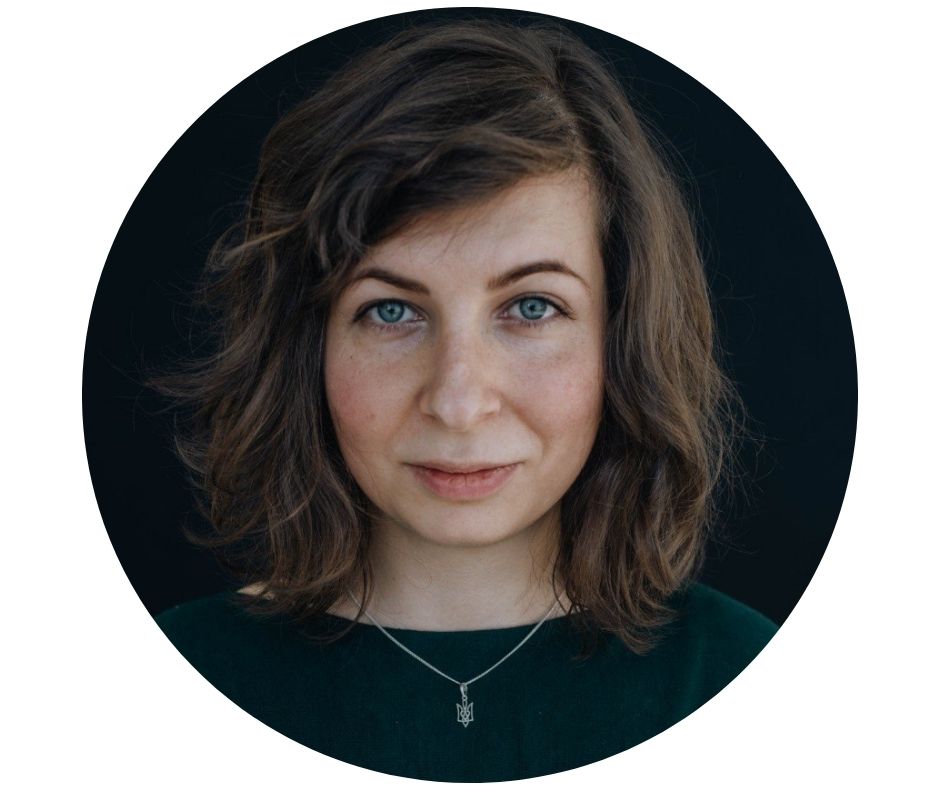 Valeriia Rybak(Ukraine), Director of NGO Human Rights Vector, Ukrainian human-rights defender.
Valeriia Rybak(Ukraine), Director of NGO Human Rights Vector, Ukrainian human-rights defender.
Valeriia has experience in both state institutions and non-governmental organizations. She is the author and developer of the mechanism for broadcasting court hearings using court technology, an expert in court monitoring, and has authored numerous studies, publications, and manuals on judicial communication practices, compliance with the right to a fair trial in Ukraine, and development of psychological assistance to victims of war and overcoming the consequences of Russia's war against Ukraine (hrvector.org/valeriya-ribak).
She has been working on the protection of human rights in the public sector since 2008. From 2010 to 2012, she worked as an analyst at the Government Contact Center. From 2012 to 2016, she developed and coordinated the public observation group “OZON”, which monitors court processes and peaceful gatherings. The public monitoring group “OZON” operates within the framework of the “Civil Liberties Center” NGO, which received the Nobel Peace Prize in 2022 for its important work in the protection of human rights.
In 2015, Ms. Rybak conducted professional training sessions for patrol units of the Ministry of Internal Affairs of Kyiv, on the topic of “The Partnership of Police and Society”.
Valeriia Rybak is one of the founding members of the NGO “Human Rights Vector” and has served as its director since 2016.
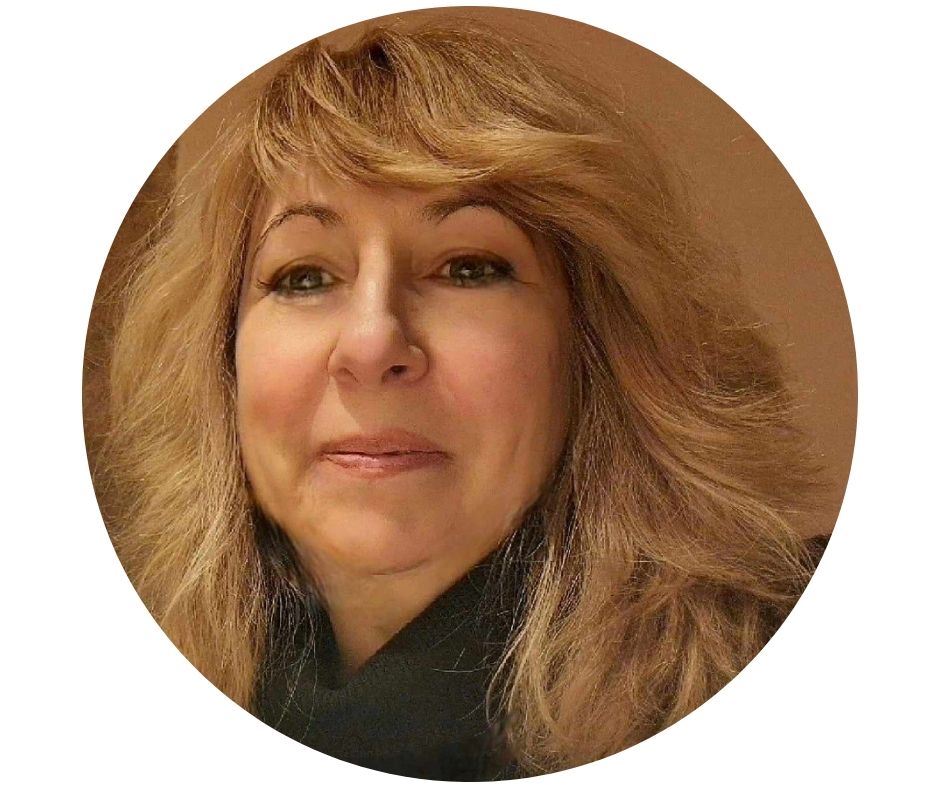 Iryna Ratzke-Rybak(Ukraine-Germany), psychologist, supervisor, training analyst, group analyst, couples and family therapist.
Iryna Ratzke-Rybak(Ukraine-Germany), psychologist, supervisor, training analyst, group analyst, couples and family therapist.
Iryna has more than 20 years of experience as a therapist and training analyst in individual and group therapy, 10 of them in the regional clinical hospital with various psychosomatic disorders.
She is a member of the Presidium of the Association of Psychologists and Psychotherapists of Ukraine (APPU) and head of the Department of Psychoanalytic Psychotherapy for Couples and Families (Ukraine). She is an EFPP Delegate from the Department of Psychoanalytic Psychotherapy of Couples and Families from the APPA in the Department of Couple and Family Psychotherapy. She is a valid GASI member. She is a guest lecturer at the Evangelisches Bildungswerk Regensburg (Germany). Certified Master Trainer in Mental Health, focusing on trauma psychotherapy and PTSD treatment, Community Stress Prevention Centre מרכז משאבים (Israel). Founder of the Khmelnytsky School of Psychotherapy (Ukraine).
Iryna is a private practitioner and founding director of the Creative Laboratory for Human Development «Lebenskompetenzen», Regensburg (Germany).
Iryna provides group psychological and psychosocial support to women and children forced to migrate from Ukraine to Germany at EBW (Evangelical Academy).
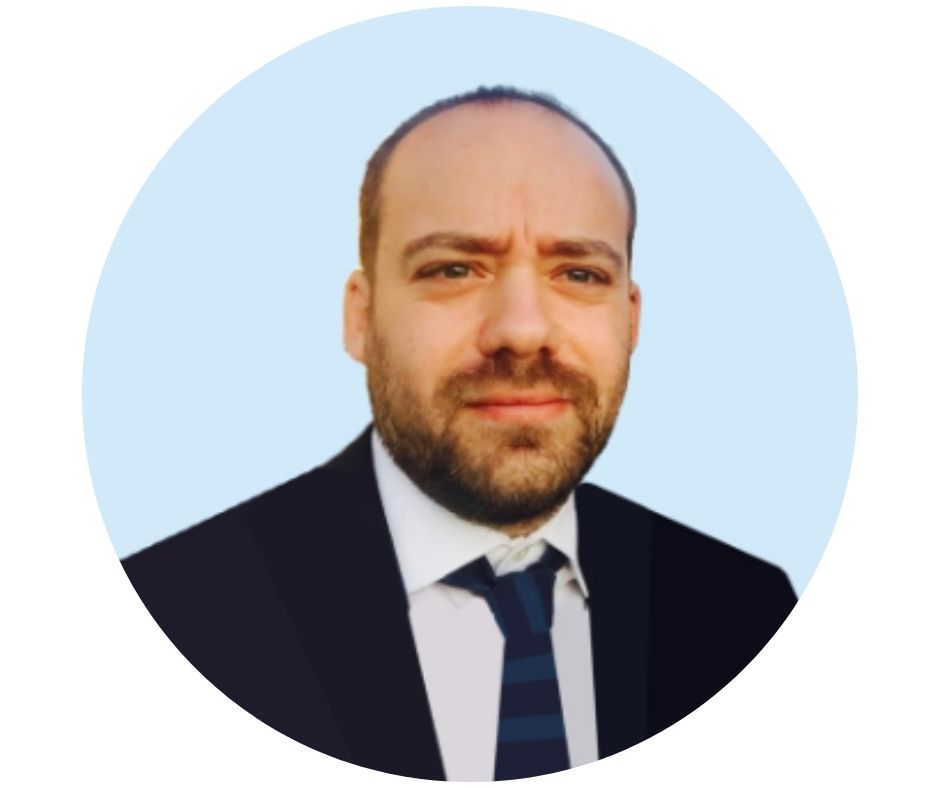 Oleksandr Moldavskyi(Germany), psychiatrist, psychotherapist, doctor of medical sciences (Heidelberg University).
Oleksandr Moldavskyi(Germany), psychiatrist, psychotherapist, doctor of medical sciences (Heidelberg University).
Oleksandr is a Master of Biostatistics and a member of the Ukrainian Medical Society in Germany, the Central Institute of Mental Health in Mannheim, and the German Center for Mental Health (DZPG).
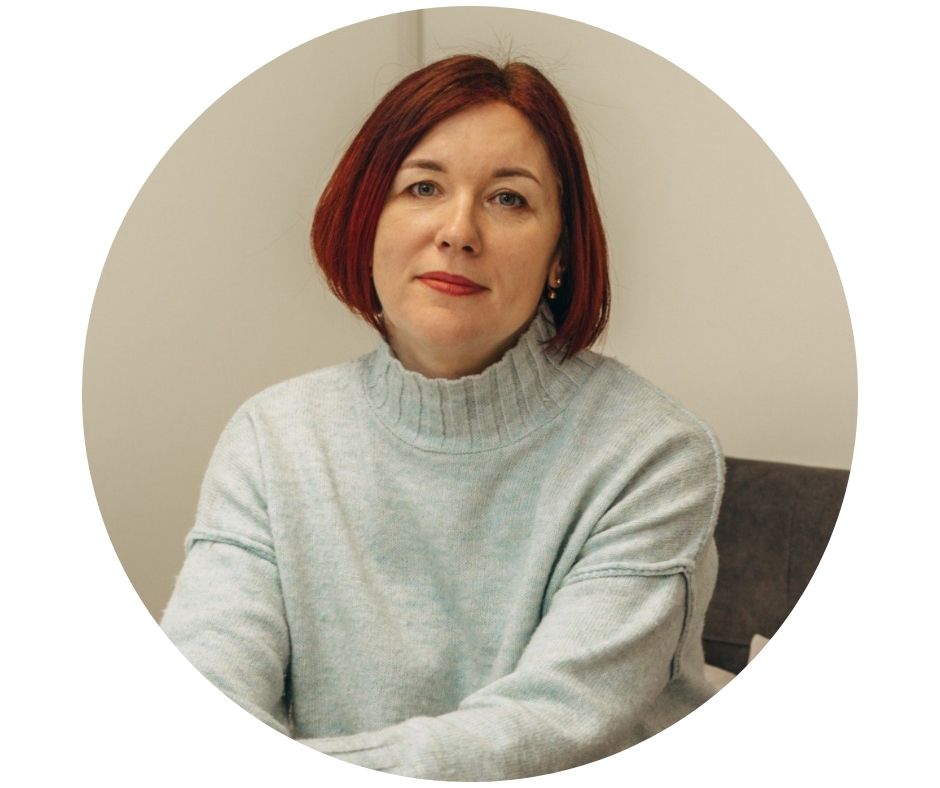 Natalia Pidkaliuk(Ukraine), psychiatrist, Trauma Focus trainer (Institute of Neuropsychotherapy, Austria), head of IPSI NGO.
Natalia Pidkaliuk(Ukraine), psychiatrist, Trauma Focus trainer (Institute of Neuropsychotherapy, Austria), head of IPSI NGO.
Natalia participates in educational projects on group psychoanalysis (APPU), clinical hypnosis (APPU), reconsolidation of traumatic memories (RTM), and crisis leadership programs (Centre for Humanitarian Leadership).
Natalya has 20 years of professional experience, 12 of which she worked in a psychiatric clinic and then in the Centre for Medical and Psychological Rehabilitation of Stress Disorders. Since December 2021, she has been conducting private practice and is the head of the NGO.
Since the beginning of the full-scale war, the IPSI NGO has provided psychosocial support services to people affected by the war, with individual consultations and group classes. Since August 2022, the IPSI has been operating the Plus Plus veteran space as part of the Veteran Hub, which provides psychological, social and legal support services for veterans and their families. She also conducts training for people in helping professions to prevent professional burnout and organises educational events for psychologists.
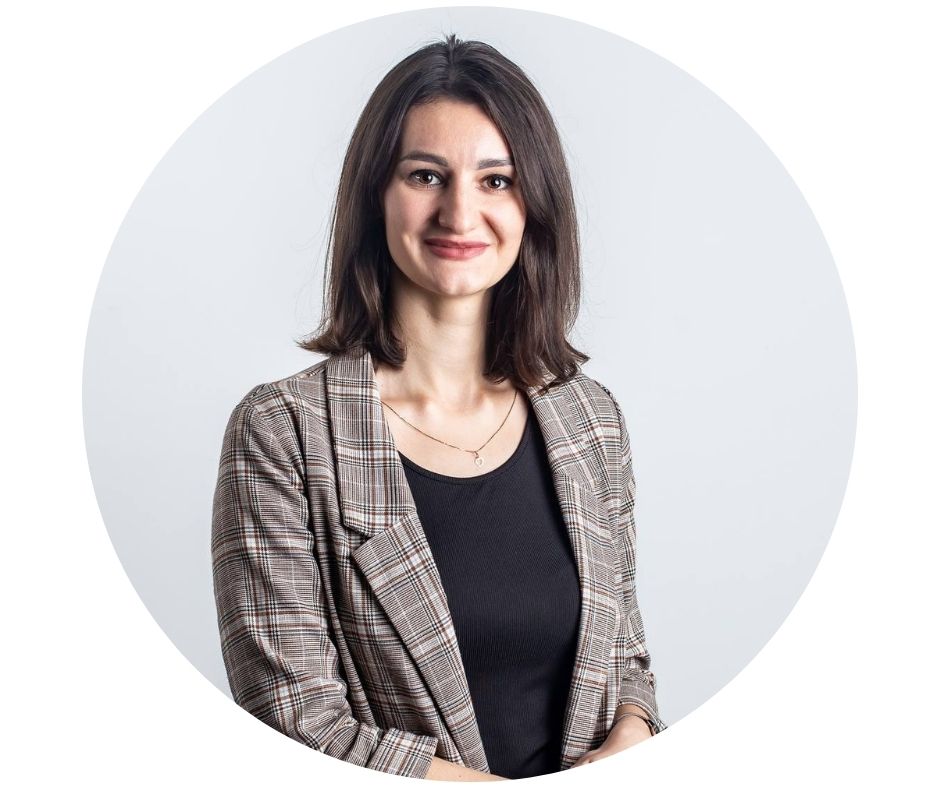 Yuliia Moriy(Ukraine), director of the Legal Hundred NGO.
Yuliia Moriy(Ukraine), director of the Legal Hundred NGO.
The «Legal Hundred» non-governmental organization was established in 2014 as a collective of lawyers dedicated to aiding military personnel and veterans. Their mission centers on safeguarding human rights within military service and devising legal frameworks for veteran reintegration. The NGO offers pro bono legal assistance, educates on military personnel and veterans' rights and entitlements, conducts legal analysis in veteran affairs, and advocates for systemic reforms.
Yuliia contributed significantly to shaping Ukraine's Recovery Plan as an analyst within the working group on veteran rights protection at the Office of Reforms under the Cabinet of Ministers in 2022. From 2019 to 2021, she served as a national expert for NATO's representation in Ukraine, focusing on safeguarding veteran rights and participating in institutional development projects of Ukraine's Ministry of Veterans Affairs. Prior to this, Yuliia played a pivotal role as one of the main experts at the Project Office, which advocated for the establishment of the Ministry of Veterans.
Furthermore, Yuliia Moriy co-authored at least 10 bills aimed at bolstering legal and social protections for military personnel and veterans, with many already enacted into law. She also initiated and coordinated numerous projects aimed at enhancing the institutional capacities of veteran organizations and improving their services and activities.
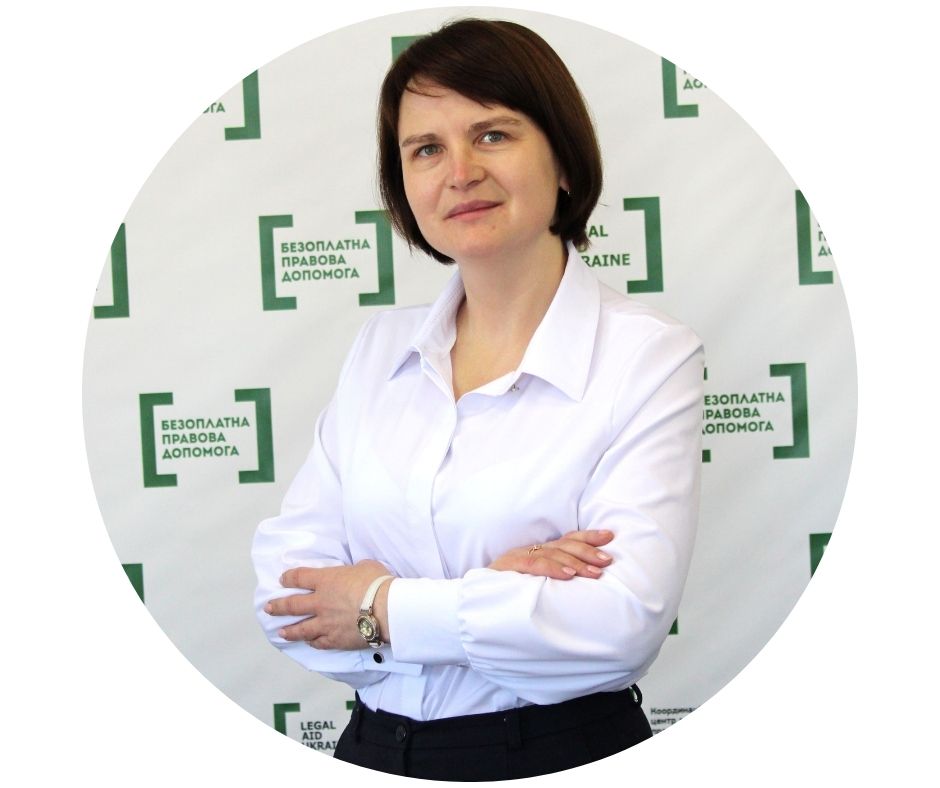 Nataliia Marchuk(Ukraine), deputy director of the Coordinating Center for the Provision of Legal Aid.
Nataliia Marchuk(Ukraine), deputy director of the Coordinating Center for the Provision of Legal Aid.
Nataliia has been actively involved in the provision of free legal aid since the Coordinating Center for the Provision of Legal Aid was established (in 2011). She has contributed to developing the institutional components, shaping the legal framework, and fostering partnerships with key stakeholders such as law enforcement and judicial bodies, as well as public organizations. Presently, one of Nataliia's key areas of focus involves coordinating the enhancement of the capacity of the Single Contact Telephone Number for free legal assistance (0800 213 103) and advancing the service component of legal service provision.
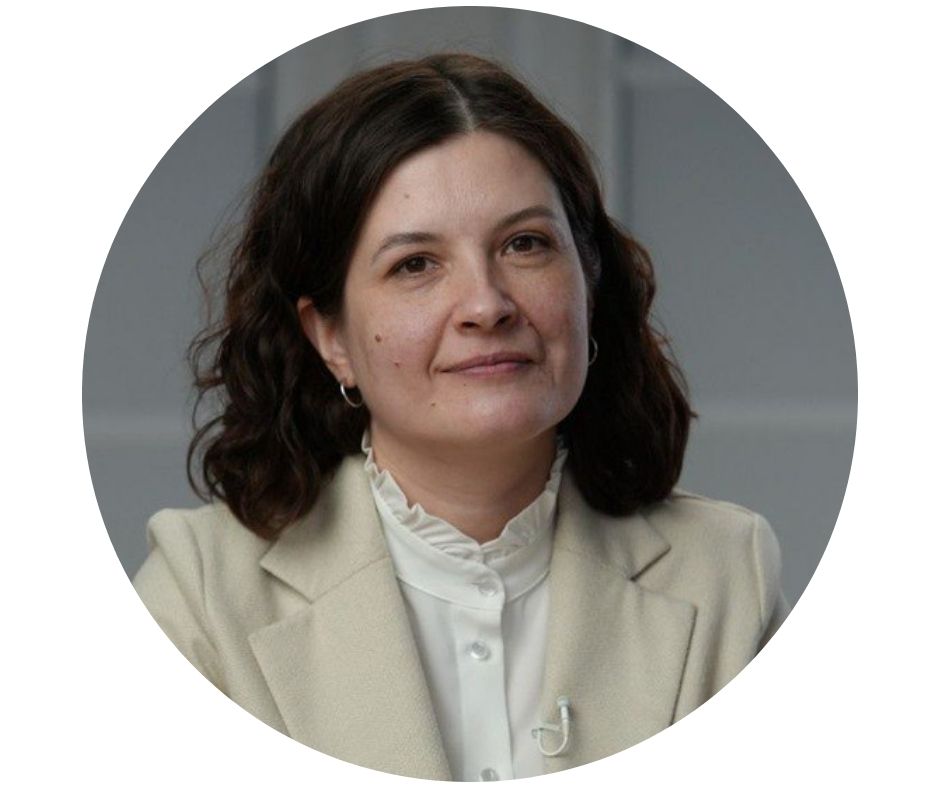 Liliia Oliynyk(Ukraine), lawyer, mediator, dialogue facilitator, and trainer.
Liliia Oliynyk(Ukraine), lawyer, mediator, dialogue facilitator, and trainer.
Liliia participates in the initiatives of the JurFem NGO to provide aid to victims of sexual violence and all types of gender discrimination and in the projects of the Human Rights Vector NGO on psychological and legal support. She has experience working with conflicts in places of assistance to IDPs. She is the author of scientific publications and manuals on the observance of children's rights, the impact of war on the rights of IDPs, and the European Court of Human Rights Case Law (Ukraine).
For reference: The project «Helping those who help» is implemented by the NGO Human Rights Vector with financial support from the European Union, within the framework of the Stiykist Program. The Stiykist Program is a 30-month project funded by the European Union and implemented by ERIM (Equal Rights & Independent Media) in partnership with the Black Sea Trust, the Eastern Europe Foundation, the Human Rights Houses Foundation and the Human Rights House in Tbilisi. The project is aimed at strengthening the resilience and effectiveness of war-affected CSOs and civil society workers affected by the war in Ukraine, including independent media and human rights defenders.
Amidst Russia's prolonged war against Ukraine, prioritizing psychological well-being becomes crucial for societal support and mitigating the collective trauma's adverse effects. The “Helping Those Who Help” program focuses on methodical and psychological assistance for professionals in psychosocial, psychological, and legal domains. Details about the program's activities can be found at the following link: hrvector.org/en/events/23-12-18-supervisory-group-sessions
The conference was dedicated to reviewing the outcomes of the “Helping Those Who Help” project, uniting efforts to address new challenges, and finding effective solutions.Due to the high demand from specialists eager to participate and receive information on the covered topics, we organized the conference on two online platforms (Zoom and YouTube) to ensure maximum participation and facilitate the sharing of experiences among attendees.
The participants comprised professionals from both the public and private sectors, including psychologists, psychotherapists, members of the medical community, lawyers, mediators, individuals from online help lines and other support projects/programs, social workers, representatives from Ukrainian and international public organizations, governmental bodies, local governments, and donor organizations. The majority of attendees hailed from the public sector.


During the event, participants actively engaged in surveys facilitated by Valeria Rybak, the director of the NGO Human Rights Vector, and conference speakers. These surveys aimed to identify and analyze the challenges encountered by specialists in their respective fields.


Valeriia Rybak opened the event by presenting the results of the “Helping Those Who Help” project over 2023-2024, carried out by the NGO Human Rights Vector.
The first part of the conference focused on specialists offering psychological assistance, addressing challenges in their work and maintaining personal well-being. The topics covered in the speeches included:
✔«Uncertainty as an key source of stress and building stress resistance», Iryna Ratzke-Rybak, psychoanalyst, supervisor, Head of the Section of Psychoanalytic Psychotherapy of Couples and Families of Association of Psychologists and Psychotherapists of Ukraine, a delegate of the EFRR, a full member of the GASI, EFPP.
✔«Support systems for Ukrainians in Germany in the field of mental health», Oleksandr Moldavskyi, psychiatrist, psychotherapist, doctor of medical sciences (Heidelberg University), M.Sc. in Biostatistics, Member of Ukrainian Medical Society in Germany, Central Institute of Mental Health Mannheim, German Center for Mental Health (DZPG), partner site Mannheim.
✔«Development of mental health services within Ukrainian communities», Natalya Pidkalyuk, psychiatrist, head of the «IPSI» NGO, Trauma focus trainer (Institute of Neuropsychotherapy, Austria).
In the second part of the event, the discussion centered around the challenges faced by specialists providing legal assistance and the maintenance of their own well-being.The topics covered in the legal aspect of the conference included:
✔«Experience of supporting the Legal Hundred NGO team», Yuliya Moriy, director of the Legal Hundred NGO.
✔«Support for legal service providers: insights from the free legal aid system», Nataliya Marchuk, deputy director of the Coordinating Center for the Provision of Legal Aid.
✔«Supporting aid professionals through a victim-oriented approach», Lilia Oliynyk, lawyer, mediator, dialogue facilitator, trainer.
The survey results and participant feedback underscored the importance of implementing measures to enhance resilience, both for professionals themselves and their clients, amidst prolonged stress. Systematic training and psychological support for specialists in helping professions offer an avenue to deliver high-quality assistance to those in need within the population.


The conference recording is available for viewing on the Human Rights Vector YouTube channel via the following active links:
✔in Ukrainian: www.youtube.com/watch?v=pi5jD7oHrK0&t=880s
✔in English: youtu.be/Y47saT9Vqyo
We are sincerely grateful to the speakers for their insightful speeches and to the participants for their active engagement.
More about the speakers of the event:
 Valeriia Rybak(Ukraine), Director of NGO Human Rights Vector, Ukrainian human-rights defender.
Valeriia Rybak(Ukraine), Director of NGO Human Rights Vector, Ukrainian human-rights defender.Valeriia has experience in both state institutions and non-governmental organizations. She is the author and developer of the mechanism for broadcasting court hearings using court technology, an expert in court monitoring, and has authored numerous studies, publications, and manuals on judicial communication practices, compliance with the right to a fair trial in Ukraine, and development of psychological assistance to victims of war and overcoming the consequences of Russia's war against Ukraine (hrvector.org/valeriya-ribak).
She has been working on the protection of human rights in the public sector since 2008. From 2010 to 2012, she worked as an analyst at the Government Contact Center. From 2012 to 2016, she developed and coordinated the public observation group “OZON”, which monitors court processes and peaceful gatherings. The public monitoring group “OZON” operates within the framework of the “Civil Liberties Center” NGO, which received the Nobel Peace Prize in 2022 for its important work in the protection of human rights.
In 2015, Ms. Rybak conducted professional training sessions for patrol units of the Ministry of Internal Affairs of Kyiv, on the topic of “The Partnership of Police and Society”.
Valeriia Rybak is one of the founding members of the NGO “Human Rights Vector” and has served as its director since 2016.
 Iryna Ratzke-Rybak(Ukraine-Germany), psychologist, supervisor, training analyst, group analyst, couples and family therapist.
Iryna Ratzke-Rybak(Ukraine-Germany), psychologist, supervisor, training analyst, group analyst, couples and family therapist. Iryna has more than 20 years of experience as a therapist and training analyst in individual and group therapy, 10 of them in the regional clinical hospital with various psychosomatic disorders.
She is a member of the Presidium of the Association of Psychologists and Psychotherapists of Ukraine (APPU) and head of the Department of Psychoanalytic Psychotherapy for Couples and Families (Ukraine). She is an EFPP Delegate from the Department of Psychoanalytic Psychotherapy of Couples and Families from the APPA in the Department of Couple and Family Psychotherapy. She is a valid GASI member. She is a guest lecturer at the Evangelisches Bildungswerk Regensburg (Germany). Certified Master Trainer in Mental Health, focusing on trauma psychotherapy and PTSD treatment, Community Stress Prevention Centre מרכז משאבים (Israel). Founder of the Khmelnytsky School of Psychotherapy (Ukraine).
Iryna is a private practitioner and founding director of the Creative Laboratory for Human Development «Lebenskompetenzen», Regensburg (Germany).
Iryna provides group psychological and psychosocial support to women and children forced to migrate from Ukraine to Germany at EBW (Evangelical Academy).
 Oleksandr Moldavskyi(Germany), psychiatrist, psychotherapist, doctor of medical sciences (Heidelberg University).
Oleksandr Moldavskyi(Germany), psychiatrist, psychotherapist, doctor of medical sciences (Heidelberg University).Oleksandr is a Master of Biostatistics and a member of the Ukrainian Medical Society in Germany, the Central Institute of Mental Health in Mannheim, and the German Center for Mental Health (DZPG).
 Natalia Pidkaliuk(Ukraine), psychiatrist, Trauma Focus trainer (Institute of Neuropsychotherapy, Austria), head of IPSI NGO.
Natalia Pidkaliuk(Ukraine), psychiatrist, Trauma Focus trainer (Institute of Neuropsychotherapy, Austria), head of IPSI NGO.Natalia participates in educational projects on group psychoanalysis (APPU), clinical hypnosis (APPU), reconsolidation of traumatic memories (RTM), and crisis leadership programs (Centre for Humanitarian Leadership).
Natalya has 20 years of professional experience, 12 of which she worked in a psychiatric clinic and then in the Centre for Medical and Psychological Rehabilitation of Stress Disorders. Since December 2021, she has been conducting private practice and is the head of the NGO.
Since the beginning of the full-scale war, the IPSI NGO has provided psychosocial support services to people affected by the war, with individual consultations and group classes. Since August 2022, the IPSI has been operating the Plus Plus veteran space as part of the Veteran Hub, which provides psychological, social and legal support services for veterans and their families. She also conducts training for people in helping professions to prevent professional burnout and organises educational events for psychologists.
 Yuliia Moriy(Ukraine), director of the Legal Hundred NGO.
Yuliia Moriy(Ukraine), director of the Legal Hundred NGO.The «Legal Hundred» non-governmental organization was established in 2014 as a collective of lawyers dedicated to aiding military personnel and veterans. Their mission centers on safeguarding human rights within military service and devising legal frameworks for veteran reintegration. The NGO offers pro bono legal assistance, educates on military personnel and veterans' rights and entitlements, conducts legal analysis in veteran affairs, and advocates for systemic reforms.
Yuliia contributed significantly to shaping Ukraine's Recovery Plan as an analyst within the working group on veteran rights protection at the Office of Reforms under the Cabinet of Ministers in 2022. From 2019 to 2021, she served as a national expert for NATO's representation in Ukraine, focusing on safeguarding veteran rights and participating in institutional development projects of Ukraine's Ministry of Veterans Affairs. Prior to this, Yuliia played a pivotal role as one of the main experts at the Project Office, which advocated for the establishment of the Ministry of Veterans.
Furthermore, Yuliia Moriy co-authored at least 10 bills aimed at bolstering legal and social protections for military personnel and veterans, with many already enacted into law. She also initiated and coordinated numerous projects aimed at enhancing the institutional capacities of veteran organizations and improving their services and activities.
 Nataliia Marchuk(Ukraine), deputy director of the Coordinating Center for the Provision of Legal Aid.
Nataliia Marchuk(Ukraine), deputy director of the Coordinating Center for the Provision of Legal Aid.Nataliia has been actively involved in the provision of free legal aid since the Coordinating Center for the Provision of Legal Aid was established (in 2011). She has contributed to developing the institutional components, shaping the legal framework, and fostering partnerships with key stakeholders such as law enforcement and judicial bodies, as well as public organizations. Presently, one of Nataliia's key areas of focus involves coordinating the enhancement of the capacity of the Single Contact Telephone Number for free legal assistance (0800 213 103) and advancing the service component of legal service provision.
 Liliia Oliynyk(Ukraine), lawyer, mediator, dialogue facilitator, and trainer.
Liliia Oliynyk(Ukraine), lawyer, mediator, dialogue facilitator, and trainer. Liliia participates in the initiatives of the JurFem NGO to provide aid to victims of sexual violence and all types of gender discrimination and in the projects of the Human Rights Vector NGO on psychological and legal support. She has experience working with conflicts in places of assistance to IDPs. She is the author of scientific publications and manuals on the observance of children's rights, the impact of war on the rights of IDPs, and the European Court of Human Rights Case Law (Ukraine).
For reference: The project «Helping those who help» is implemented by the NGO Human Rights Vector with financial support from the European Union, within the framework of the Stiykist Program. The Stiykist Program is a 30-month project funded by the European Union and implemented by ERIM (Equal Rights & Independent Media) in partnership with the Black Sea Trust, the Eastern Europe Foundation, the Human Rights Houses Foundation and the Human Rights House in Tbilisi. The project is aimed at strengthening the resilience and effectiveness of war-affected CSOs and civil society workers affected by the war in Ukraine, including independent media and human rights defenders.

Comments ()